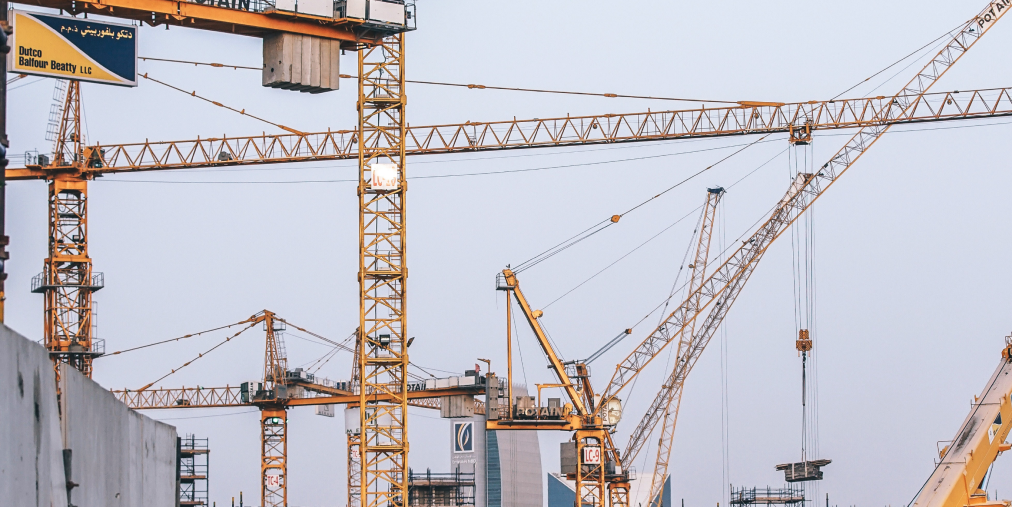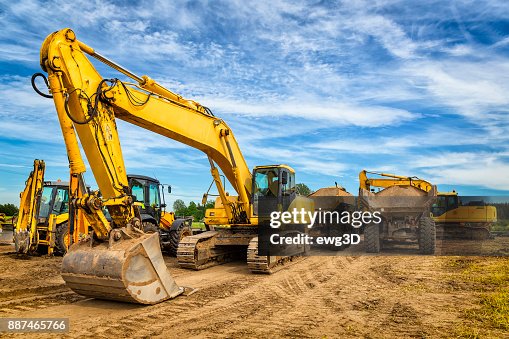Rental Company in Tuscaloosa AL: Top-Quality Equipment for Every Task
Rental Company in Tuscaloosa AL: Top-Quality Equipment for Every Task
Blog Article
Exploring the Financial Advantages of Renting Building And Construction Tools Contrasted to Having It Long-Term
The decision in between possessing and renting out building and construction devices is critical for monetary management in the sector. Renting out offers prompt cost savings and functional flexibility, permitting firms to designate sources a lot more successfully. On the other hand, ownership features considerable long-term financial commitments, consisting of maintenance and devaluation. As professionals evaluate these alternatives, the impact on cash money circulation, project timelines, and modern technology gain access to becomes significantly considerable. Recognizing these nuances is vital, specifically when considering just how they line up with details project requirements and economic approaches. What factors should be prioritized to make certain optimal decision-making in this complex landscape?

Cost Contrast: Renting Out Vs. Having
When reviewing the financial ramifications of possessing versus renting out construction devices, a comprehensive price comparison is important for making informed choices. The selection between leasing and possessing can substantially affect a firm's lower line, and comprehending the associated expenses is critical.
Leasing building equipment normally involves reduced ahead of time expenses, permitting services to designate funding to various other operational demands. Rental arrangements commonly include flexible terms, making it possible for firms to access advanced machinery without lasting dedications. This adaptability can be particularly helpful for temporary tasks or fluctuating workloads. Nonetheless, rental expenses can collect over time, potentially exceeding the cost of possession if equipment is required for a prolonged duration.
On the other hand, owning building devices calls for a substantial initial investment, in addition to recurring costs such as funding, insurance, and devaluation. While possession can result in long-term financial savings, it likewise binds capital and may not supply the very same degree of versatility as renting. Furthermore, possessing equipment requires a commitment to its use, which may not constantly straighten with task demands.
Inevitably, the decision to possess or rent must be based on a comprehensive analysis of particular task needs, economic capacity, and lasting critical goals.

Maintenance Costs and Responsibilities
The option between having and renting out building and construction tools not only includes economic considerations however also incorporates continuous maintenance expenses and responsibilities. Having devices needs a considerable dedication to its maintenance, that includes routine examinations, repair services, and possible upgrades. These obligations can quickly build up, leading to unforeseen expenses that can stress a budget plan.
In contrast, when renting devices, upkeep is generally the duty of the rental company. This setup allows specialists to stay clear of the monetary concern associated with damage, in addition to the logistical obstacles of scheduling fixings. Rental agreements frequently consist of arrangements for maintenance, meaning that contractors can concentrate on finishing tasks instead of bothering with equipment condition.
Furthermore, the varied array of devices available for lease enables business to choose the most up to date models with innovative modern technology, which can boost performance and productivity - scissor lift rental in Tuscaloosa Al. By choosing for leasings, companies can avoid the lasting obligation of tools devaluation and the connected upkeep frustrations. Ultimately, evaluating upkeep expenditures and duties is important for making an informed decision about whether to own or rent out building and construction devices, considerably impacting total job expenses and functional efficiency

Devaluation Influence On Ownership

A considerable element to take into consideration in the decision to possess building and construction devices is the impact of depreciation on total ownership prices. Depreciation stands for the decrease in worth of the equipment gradually, influenced by factors such as use, damage, and developments in modern technology. As devices ages, its market value decreases, which can dramatically affect the proprietor's financial placement when it comes time to trade the devices or offer.
For building firms, this devaluation can translate to considerable losses if the tools is not utilized to its fullest capacity or if it lapses. Owners need to make up depreciation in their financial forecasts, which can bring about higher total costs contrasted to renting out. In addition, the tax obligation effects of devaluation can be intricate; while it may give some tax obligation advantages, these are frequently countered by the truth of lowered resale value.
Eventually, the concern of devaluation stresses the significance of understanding the long-term financial dedication associated with having building and construction devices. Firms have to meticulously assess exactly how frequently they will certainly make use of the devices and the prospective financial effect of depreciation to make an enlightened choice regarding possession versus renting.
Monetary Flexibility of Leasing
Renting building tools uses substantial monetary versatility, allowing firms to assign sources extra efficiently. This flexibility is especially crucial in an industry defined by fluctuating task demands and varying workloads. By opting to rent, organizations can stay clear of the considerable funding outlay needed for acquiring devices, preserving capital for various other functional needs.
Furthermore, renting tools allows companies to customize their equipment options to certain job demands without the lasting commitment linked with possession. This indicates that businesses can quickly scale their tools supply up or down based upon present and awaited task demands. Subsequently, this flexibility decreases the danger of over-investment in machinery that may end up being underutilized or obsolete gradually.
An additional economic advantage of leasing is the possibility for tax advantages. Rental settlements are frequently considered operating budget, permitting immediate tax deductions, unlike devaluation on owned and operated tools, which is spread out over numerous years. scissor lift rental in Tuscaloosa Al. This instant expense recognition can better enhance a business's cash money position
Long-Term Task Considerations
When reviewing the long-lasting needs of a bricklaying tools list building and construction company, the decision in between renting out and possessing devices ends up being much more complicated. For jobs with extended timelines, acquiring tools may appear more information beneficial due to the possibility for lower overall prices.
Furthermore, technical innovations position a significant consideration. The construction industry is developing quickly, with new equipment offering enhanced efficiency and safety and security functions. Leasing enables business to access the most up to date innovation without committing to the high ahead of time costs associated with investing in. This versatility is especially useful for organizations that deal with diverse jobs requiring different sorts of devices.
Furthermore, monetary security plays a critical duty. Having tools frequently entails significant resources investment and depreciation problems, while renting permits even more predictable budgeting and cash money circulation. Inevitably, the choice in between renting and owning ought to be aligned with the strategic objectives of the building and construction organization, considering both expected and existing job demands.
Conclusion
In verdict, renting building and construction devices uses considerable financial advantages over long-lasting ownership. Ultimately, the decision to rent out rather than very own aligns with the vibrant nature of building jobs, allowing for adaptability and access to the most recent devices without the financial burdens connected with ownership.
As devices ages, its market worth diminishes, which can significantly impact the proprietor's economic placement when it comes time to market or trade the Read Full Article devices.
Renting building and construction tools supplies significant monetary flexibility, permitting business to designate sources a lot more efficiently.Additionally, leasing tools enables firms to tailor their devices selections to certain project demands without the lasting commitment connected with ownership.In conclusion, renting out building and construction equipment provides significant economic benefits over long-term possession. Ultimately, the choice to rent out instead than very own aligns with the dynamic nature of building tasks, allowing for flexibility and accessibility to the most recent tools without the financial worries associated with possession.
Report this page